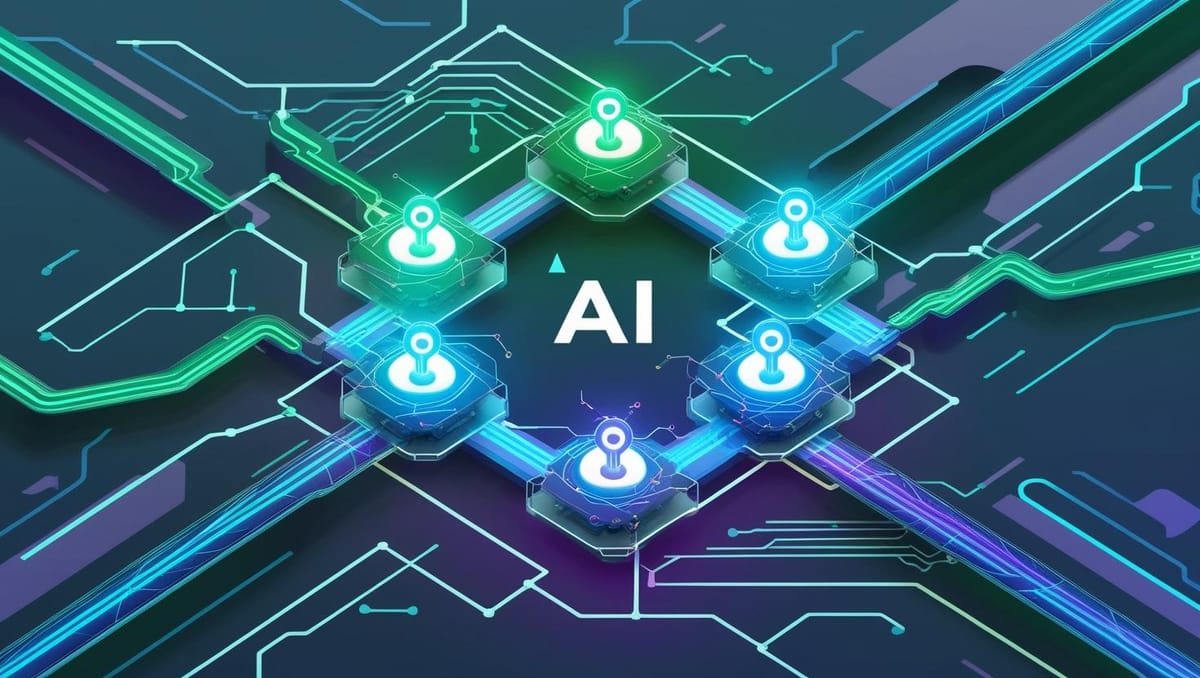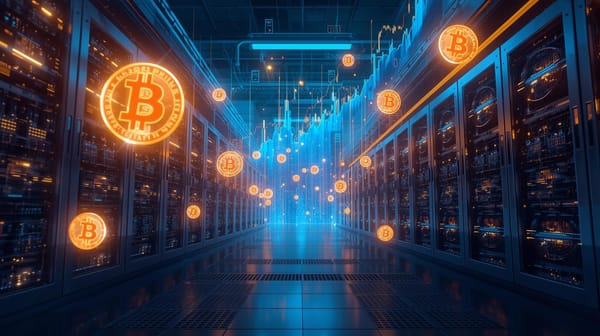The Rise of AI-Powered Blockchain Networks: How Machine Learning is Changing the Industry

Introduction
The rapid evolution of blockchain technology has revolutionized industries by providing a decentralized, transparent, and secure framework for transactions and data storage. However, blockchain networks face several challenges, including scalability issues, energy consumption, security threats, and operational inefficiencies.
Artificial intelligence (AI), particularly machine learning (ML), is emerging as a transformative force that enhances blockchain technology. By incorporating AI, blockchain networks can become smarter, more efficient, and adaptable, enabling automation, predictive analytics, and real-time decision-making.
This article explores how AI-powered blockchain networks are reshaping the industry, examining their applications, benefits, challenges, and future potential.
How AI is Transforming Blockchain Networks
1. AI for Enhanced Security and Fraud Detection
One of the biggest concerns in blockchain and cryptocurrency ecosystems is security. While blockchain's decentralized nature reduces certain risks, it does not eliminate fraud, hacks, and malicious activities. AI-driven security systems provide an extra layer of protection by:
- Detecting fraudulent transactions: AI algorithms can analyze large datasets of blockchain transactions in real time, identifying suspicious patterns or anomalies that indicate potential fraud, hacking attempts, or illicit activities such as money laundering.
- Automated threat response: AI can proactively respond to potential threats by flagging or blocking malicious transactions before they are confirmed on the blockchain.
- Preventing smart contract vulnerabilities: AI can analyze smart contract code to detect bugs, vulnerabilities, or potential exploits before deployment, reducing the risk of security breaches.
2. AI-Optimized Smart Contracts
Smart contracts are self-executing agreements that automatically enforce terms when predefined conditions are met. However, traditional smart contracts are static, meaning they cannot adapt to changes over time. AI can enhance smart contracts by:
- Introducing adaptability: AI-driven smart contracts can learn from historical data, adjust contract terms based on new information, and optimize execution efficiency.
- Reducing errors and inefficiencies: AI can review smart contract code before deployment, identifying potential inefficiencies or risks, ensuring smoother execution.
- Enhancing automation: AI allows smart contracts to interact with external data sources (oracles) in a more intelligent way, improving decision-making accuracy.
3. Improving Blockchain Scalability and Network Performance
Scalability remains a major challenge for blockchain networks, as high transaction volumes often lead to congestion, slow processing times, and increased fees. AI addresses these issues by:
- Optimizing transaction processing: AI-powered predictive analytics can anticipate network congestion, allowing blockchain systems to adjust block sizes dynamically, prioritize urgent transactions, and allocate resources more efficiently.
- Enhancing consensus mechanisms: AI can improve proof-of-stake (PoS) and other consensus algorithms by optimizing validator selection, reducing energy consumption, and increasing transaction throughput.
- Reducing gas fees: By analyzing historical transaction patterns, AI can suggest optimal times for conducting transactions with minimal fees, benefiting users and businesses.
4. AI in Decentralized Autonomous Organizations (DAOs) and Governance
Decentralized Autonomous Organizations (DAOs) represent a new governance model where decisions are made collectively by stakeholders rather than centralized authorities. However, DAOs face challenges such as voter apathy, inefficiency, and governance manipulation. AI can enhance DAO governance by:
- Automating decision-making processes: AI-driven DAOs can analyze voting patterns, economic trends, and member interactions to propose optimal governance strategies.
- Improving transparency and accountability: AI can audit and verify DAO activities to ensure fairness and prevent manipulation by large stakeholders.
- Enhancing stakeholder engagement: AI-powered chatbots and recommendation systems can educate DAO members about proposals, encouraging informed participation.
5. AI-Powered Crypto Trading and Investment Strategies
The cryptocurrency market is highly volatile, making it difficult for traders and investors to predict price movements accurately. AI plays a crucial role in:
- Market analysis and trend prediction: AI models process vast amounts of historical and real-time market data to identify trading opportunities.
- Automated trading bots: AI-driven bots execute trades based on predefined strategies, removing emotional bias and improving efficiency.
- Portfolio management: AI optimizes investment portfolios by diversifying assets, minimizing risks, and maximizing returns.
6. AI for Data Privacy and Identity Management in Blockchain
Privacy is a critical concern in blockchain applications, especially in identity management and personal data storage. AI enhances privacy by:
- Enabling zero-knowledge proofs (ZKPs): AI can optimize ZKP cryptographic techniques, allowing users to prove their identity without revealing sensitive data.
- Automating KYC/AML processes: AI-driven identity verification systems improve Know Your Customer (KYC) and Anti-Money Laundering (AML) compliance by analyzing behavioral data and detecting fraudulent identities.
- Improving decentralized identity systems: AI-powered blockchain networks enable self-sovereign identity (SSI), giving users full control over their personal data without relying on centralized authorities.
Challenges and Ethical Concerns
Despite the promising benefits of AI-powered blockchain networks, several challenges and ethical concerns must be addressed:
1. Transparency and Bias in AI Decision-Making
AI models often operate as "black boxes," making it difficult to understand how decisions are made. Additionally, AI algorithms can inherit biases from their training data, potentially leading to unfair or discriminatory outcomes.
2. Energy Consumption and Sustainability
Both AI and blockchain require significant computational power, raising concerns about energy consumption. Sustainable solutions, such as AI-optimized proof-of-stake mechanisms and green computing, are essential to mitigate environmental impact.
3. Security Risks of AI-Driven Attacks
While AI enhances security, it can also be weaponized for cyberattacks. Malicious actors may use AI to exploit vulnerabilities in blockchain networks, conduct large-scale phishing attacks, or manipulate market data.
4. Regulatory and Legal Challenges
AI and blockchain operate in a largely unregulated space, creating legal uncertainties. Governments and regulatory bodies must establish frameworks to ensure responsible AI and blockchain development while fostering innovation.
The Future of AI-Powered Blockchain Networks
The integration of AI and blockchain is still in its early stages, but the future holds immense potential. Some key developments to watch include:
- AI-powered Layer 2 solutions: Enhancing Bitcoin and Ethereum scalability using AI-driven transaction optimization.
- AI-driven tokenization of assets: AI will facilitate the tokenization of real-world assets, improving liquidity in decentralized finance (DeFi).
- Autonomous blockchain networks: AI will enable self-sustaining blockchain ecosystems that require minimal human intervention for governance, security, and scalability.
- Personalized blockchain experiences: AI will tailor user interactions on decentralized applications (dApps) based on individual preferences and behaviors.
Conclusion
AI-powered blockchain networks are ushering in a new era of efficiency, security, and automation. By combining blockchain's transparency with AI's intelligence, these systems can revolutionize industries such as finance, supply chain, healthcare, and governance. However, challenges related to transparency, energy consumption, security, and regulation must be addressed to ensure responsible and ethical development.
As AI and blockchain continue to evolve, their intersection will unlock unprecedented opportunities, creating a smarter, more interconnected digital economy. The future belongs to decentralized, AI-driven networks that empower users while maintaining security, privacy, and fairness.
This article presented by Loka Mining.
Loka is revolutionizing the Bitcoin mining ecosystem by directly connecting investors with Bitcoin miners through a decentralized mining pool and an upcoming permissionless forward hashrate marketplace protocol.
Loka enables investors to get Bitcoin at lower than market price without centralized & counter-party risks, and Bitcoin miners to access capital efficient financing and hedge their risk exposure by selling their future mining rewards.
Find out more about loka in https://lokamining.com — or access our mining pool aggregator on https://pool.lokamining.com





